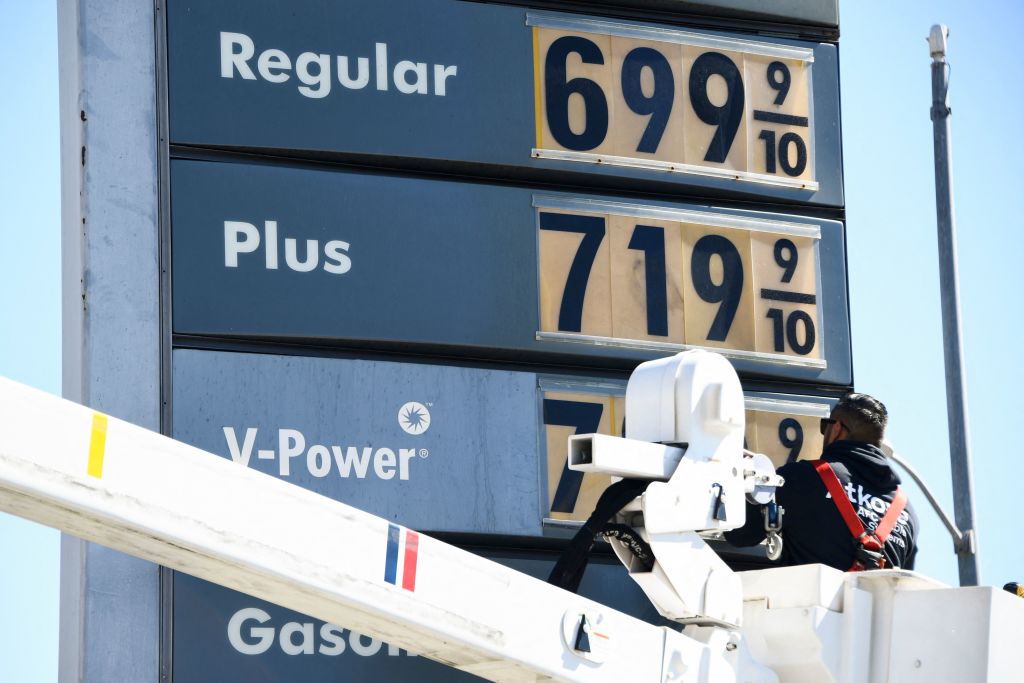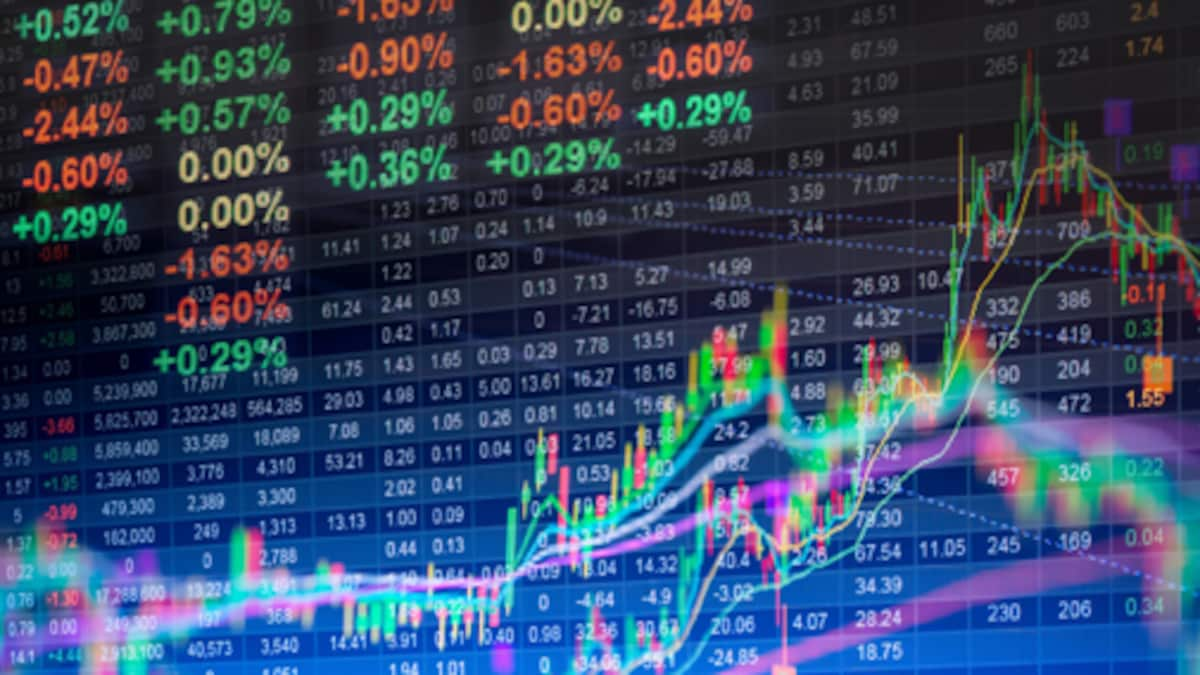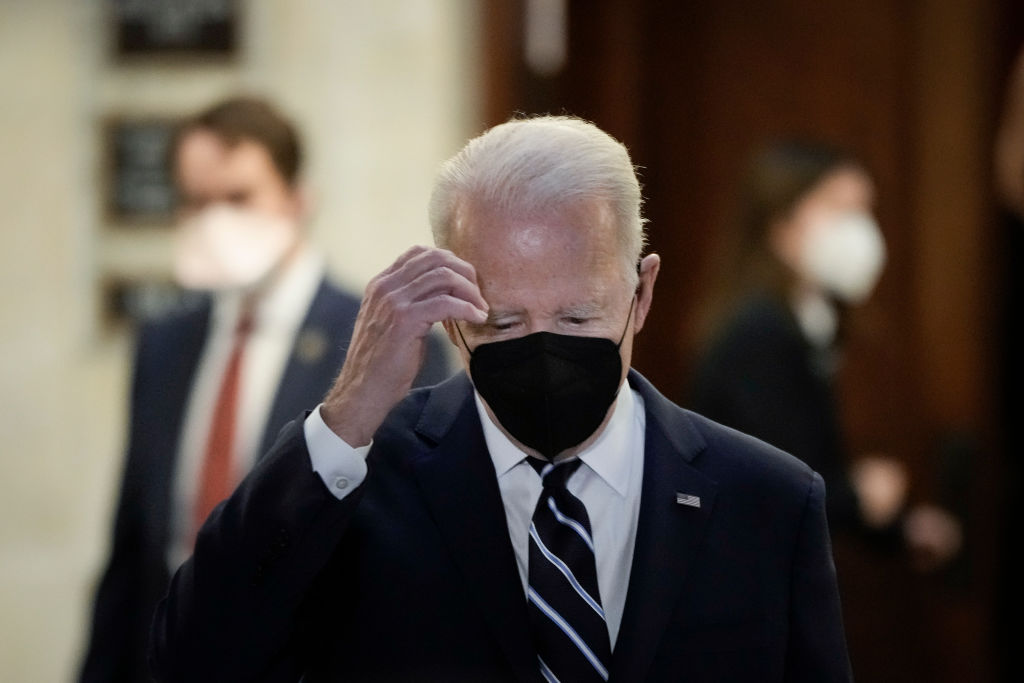Few understand our post-information age.
Economic Meltdown Threatens

Consumer confidence can be an important leading indicator for the economy.
Despite strong economic growth, the Biden Administration’s spending, taxing, focus on climate change and social “equity”—along with the Covid pandemic, crime, and Russia’s invasion of Ukraine—is creating a crisis of confidence about the future. Mark Zandi, chief economist of Moody’s Analytics, sees a 30 percent chance of recession within the next 12 to 18 months. Unless change comes soon, the risk is much larger.
You wouldn’t think so, but there is a lot of good news. Last month, the U.S. unemployment rate dropped to 3.8 percent, down from 6.2 percent a year ago. Labor force participation reached 62.3 percent, compared to 61.5 percent a year ago and 63.3 percent before Covid. Nearly 158 million Americans had jobs, compared to 150 million a year ago, and 159 million before Covid.
Average hourly wages reached $26.92 in January, up from $25.21 a year ago, nearly equal to the rate of inflation. Though there has been some instability because of Ukraine, the stock market has reached all-time highs.
Yet, consumer confidence is dropping and economists are concerned.
The OCED Consumer Confidence Index has reached its lowest level since 2012. Business confidence has been declining since March 2021. The Conference Board’s Expectations Index is well below its Present Situation index. After dropping more than 25 percent at the beginning of the Covid pandemic to 71.8, the University of Michigan’s consumer sentiment survey rebounded to 88.3 in April 2021. By January, before the Russian invasion of Ukraine, confidence was down to 67.2.
Inflation is a leading cause of weakening confidence and economists’ concerns. Since early 2021, nearly every month has shown an increase in the annualized inflation rate compared to the previous month, reaching an annual rate of 7.5 percent in January, the highest since February 1982. That’s before Russia’s invasion of Ukraine pushed crude oil prices to $120 per barrel, with additional increases expected. Just a year ago, the price of crude was about $66 per barrel.
There is also concern that bond yields are flattening, and there is a potential for an inverted yield curve, meaning short-term or mid-term interest rates would exceed long-term interest rates. America’s gross debt topped $30 trillion for the first time last week, exceeding the nation’s gross output.
Some economists see the ingredients for stagflation and recession.
Most Americans have rejected the Biden Administration’s assertion that spending trillions of dollars or raising taxes will reduce inflation. While there is some truth to the long run benefits of infrastructure investment, contrary to the politicized missive from 17 Nobel Prize laureates in support of Biden’s plan, the truth is that government spending increases inflation in the short-run, and tax increases and government borrowing choke-off private sector investments, increasing the cost of capital and reducing supply. Larry Summers, a liberal economist, has repeatedly warned that the fundamental principles of economics do not change when the party in power changes.
Nonetheless, Biden made clear in his State of the Union speech that he is not giving up on his mega-spending plans. In 2019 and 2020, the United States was a net exporter of energy. After misleading voters about his positions on fracking and fossil fuels, among Biden’s first acts as president were cancellation of the Keystone XL pipeline and pausing the leasing of federal lands for oil and gas exploration. His appointees to the Federal Energy Commission have changed the policy for new pipeline approvals to include long-term greenhouse effects as a criterion for consideration. These policies will prevent the U.S. from expanding its supply of liquid natural gas, increasing U.S. and European reliance on Russia, and risking shortages and further price increases.
In fairness, some of the growth in consumer discomfort parallels the rapid spread of the Omicron variant, but confidence started falling last summer, as Delta was coming under control. The accelerating surge in inflation, despite repeated assurances from the Biden Administration that the problem was merely transitory, have shaken confidence in the Administration and the future. So too have shortages, which have at times left supermarket shelves bare, led to long wait times for automobiles and electronic devices, and even made it difficult to find a favorite toy.
Americans are suffering a crisis of personal and financial safety, and a loss of confidence in government. In a Rasmussen poll last month, 56 percent of likely U.S. voters questioned Biden’s capability to do his job. In a January Gallup poll, just 45 percent of Americans thought Biden honest and trustworthy, and only 38 percent thought he could effectively manage the government, down 14 percentage points from September 2020, when a majority of the country was confident in Biden’s competence.
Americans fear for their safety. The FBI recently reported that in 2020, for the first time in four years, the number of violent crimes increased compared to the previous year, up 5.6 percent. Aggravated assaults rose 12.1 percent, and murder and nonnegligent manslaughter increased 29.4 percent. The first half of 2021, the last period for which data is available, was even worse. Homicides in major U.S. cities jumped 16 percent compared with the first half of 2020, aggravated and gun assault rates increased nine percent, gun assaults increased five percent, and motor vehicle thefts were 21 percent higher.
Yet Democrats continue to elect mayors and district attorneys who favor defunding police, decriminalizing non-violent offenses and even some violent offenses, releasing repeat offenders without bail, reducing prison sentences, and refusing to prosecute violence against police.
Many Americans also fear for their livelihoods. The Biden Administration has committed to a whole-of government initiative to advance diversity, equity, and inclusion by compelling federal workers, contractors, and grantees to hire and advance “historically marginalized minorities.” Add public and private sector contracts, loans, and other benefits reserved for minority or women-owned businesses, and many whites and Asians may lose their jobs and career opportunities.
Donald Trump faults the integrity of the last election, and Joe Biden mischaracterizes election laws, calls voter ID racist, and warns the midterm elections could “easily be illegitimate.” The New York Times and leading Democrats claim to worry that American democracy may die at the hands of misinformation, white supremacy, and “anti-authority ideologies.” Americans of all political persuasions are unnerved.
Meanwhile. all this angst was before Vladimir Putin invaded Ukraine and put Russia’s nuclear forces on alert; China telegraphed that its long-threated invasion of Taiwan is growing closer; and the U.S. prepared to lift sanctions on Iran and re-enter an ill-advised regime, under which Iran’s timeline to a nuclear weapon is about 30 months, and its uranium supplies apparently will be stored in Russia.
Consumer and business confidence is, in part, a lagging indicator of economic data. But, when consumer confidence diverges from economic data, it is an assessment of other factors and becomes an important leading indicator for consumer spending and the economy.
According to the Real Clear Politics average of seven polls taken between February 15 and March 1, 63.6 percent of Americans believe the country is on the wrong track, and 28.6 percent believe the country is moving in the right direction, a 35 percent deficit. The Real Clear Politics average in July 2018 showed Trump with a deficit of just 14.7 percent.
There is a lot of truth to the precept that we can talk ourselves into a recession. Add high inflation, out of control government spending, galloping debt, more taxes, the possibility of an inverted yield curve, government-induced racial strife, a cognitively challenged president, rampant crime, energy shortages, and war, and Mark Zandi may be an optimist.
The American Mind presents a range of perspectives. Views are writers’ own and do not necessarily represent those of The Claremont Institute.
The American Mind is a publication of the Claremont Institute, a non-profit 501(c)(3) organization, dedicated to restoring the principles of the American Founding to their rightful, preeminent authority in our national life. Interested in supporting our work? Gifts to the Claremont Institute are tax-deductible.
Inside the bitter battle over America’s new geography.
Joe Biden's Presidency is shaping up to be a historical disaster.



